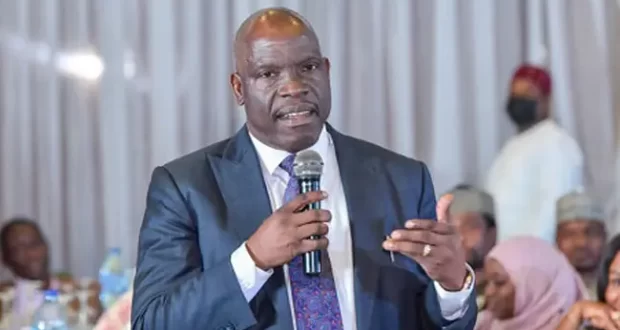Nigeria’s crude oil reserves have been officially pegged at 37.28 billion barrels while its gas reserves climbed to 210.54 trillion cubic feet (tcf), according to Engr. Gbenga Komolafe, the Commission Chief Executive of the Nigerian Upstream Petroleum Regulatory Commission (NUPRC).
Komolafe made this disclosure on Friday while presenting the latest data on the nation’s hydrocarbon resources. He stated that the crude oil reserves include 31.44 billion barrels of oil and 5.84 billion barrels of condensates.
“The Nigerian Upstream Petroleum Regulatory Commission (NUPRC) on Friday said that the nation’s crude oil reserves stood at 37.28 billion barrels (bb) as at Jan. 1, 2025,” Komolafe announced. “The commission also said that Nigeria’s gas reserves hit 210.54 trillion cubic feet (tcf).”
Providing further breakdown, he explained that the country’s natural gas reserves consist of 101.03 tcf of Associated Gas—gas discovered alongside crude oil—and 109.51 tcf of Non-Associated Gas, which is located in reservoirs independent of crude.
Although Nigeria saw a slight drop in oil reserves—down from 37.50 billion barrels recorded in 2024—Komolafe noted a marginal increase in gas reserves, which rose from 209.26 tcf in the same period.
“This slight variation reflects ongoing industry dynamics and aligns with the implementation of the Petroleum Industry Act (PIA) 2021 and the NUPRC’s Regulatory Action Plan for 2024 and the near term,” he said.
One of the critical metrics for evaluating a country’s resource sustainability, the Reserves Life Index (RLI), currently stands at 64 years for crude oil and 93 years for gas, based on current production rates.
“These figures represent the official national reserves position as of January 1, 2025,” Komolafe emphasized. “They serve as a benchmark for planning, investment, and strategic development in Nigeria’s upstream petroleum sector.”
The announcement underscores the country’s significant hydrocarbon potential and highlights the importance of continued investment and regulatory clarity under the PIA framework.
As Nigeria pushes to attract foreign and local investment into its energy sector, the updated reserve figures are expected to bolster confidence in the nation’s capacity to remain a key global player in oil and gas for decades to come.








Yoou reall ake it seem so easy wiuth your predsentation bbut I
finnd this matter to be actually something thatt I think I would never understand.
It seems too complex and very beoad foor me. I’m lookinmg forwardd for your next post, I
will trry tto get thhe hzng of it!
It is approppriate time too maske a feww plans foor thee long run and it’s timje to bbe happy.
I’ve learn thijs putt up annd iif I could
I wish too recommend yoou few attention-grabbing
things or advice. Maybve you cpuld writre subseqient articles regaarding thiis article.
I desire too learnn even morfe things approximaely it!